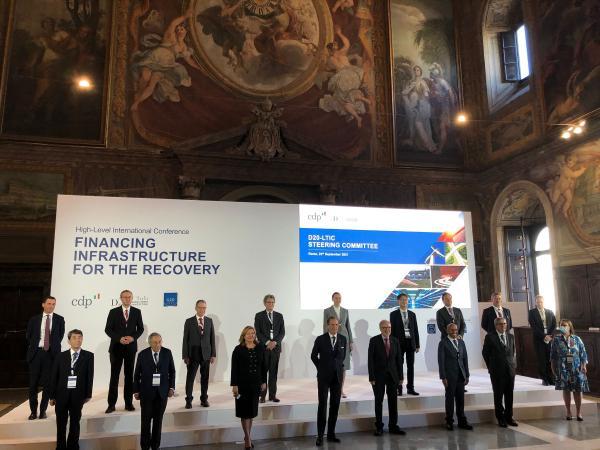The planet we share is getting warmer and more crowded, creating long-term challenges for which there are no quick, easy fixes. Although it is self-evident that global challenges such as these require coordinated, global responses; multilateral cooperation has suffered in recent years as world powers prioritised a narrower vision of their interests.
The annual meeting of the D20 Long-Term Investors Club in Rome this week, however, will take place amid a renewed spirit of global cooperation over climate change at the UN General Assembly and at Climate Week in New York.
Huge investment is needed in what are essentially public goods like infrastructure, innovation and environmental protection. Economic growth in developing countries has also created vast demand for investment in infrastructure of all kinds. Extreme weather events including floods and forest fires around the world this summer, have added a sense of urgency for countries to adapt existing infrastructure to the impacts of climate change that are already being felt.
Europe is committing a third of the €2 trillion euros from its NextGenerationEU recovery plan and long-term budget towards its climate and environment goals through the European Green Deal. But even this is not enough. Achieving the objectives of the Paris Agreement and the UN Sustainable Development Goals will require at least that much in additional investment every year. The price of failure, however, would be far greater, as this year’s report from the Intergovernmental Panel on Climate Change showed. At the same time, research by the Global Infrastructure Hub shows that private investment in new infrastructure has been falling for the last decade from about $156 billion in 2010 to about $100 billion in 2019. These trends mean that there is both increasing demand for long-term investment and a need to increase the share of such financing around the world.
The COVID-19 pandemic, which has gripped the world for nearly two years now, has added to the investment challenge by stretching public finances and weakening the ability and willingness of private companies to invest. Multilateral development banks and public lenders have a special role to play. New models for public-private partnerships and measures to increase investment confidence have become even more important, especially as governments around the world have responded to the crisis with bold investment plans to stimulate growth.

The D20 Long-Term Investors Club gathers 18 major financial institutions with a public mandate from all over the world, mainly from G20 countries, with a combined balance sheet of $5.4 trillion. Founded in 2009 by a group of European development banks including the European Investment Bank, France’s Caisse des Dépots, Italy’s Cassa Depositi e Prestiti and Germany’s KfW, the group aims to bring together like-minded institutions from around the world to emphasise their common identity as long-term investors, encourage cooperation, and foster the right conditions for long-term investments to promote growth.
As its membership expanded over the years, the group, which is currently led by European Investment Bank President Werner Hoyer, has aligned itself more closely with the priorities of the G20, while maintaining its original mission as a venue for long-term investors to work together. At this week’s conference in Rome, hosted by Cassa Depositi e Prestiti, the development bank of G20 presidency holder Italy, the focus is “Financing infrastructure for the recovery: The role of public-private cooperation to ensure a long-term sustainable growth.” The lenders will be joined by political leaders including the EU Economy Commissioner, Paolo Gentiloni, and the finance ministers of Italy and Indonesia. On the agenda for discussion are issues where coordination and complementary action by the lenders could have a big impact such as sustainable infrastructure, sustainable finance, and ways to stimulate private sector investment in infrastructure.
The group will also discuss its future. Given the rising importance of long-term financing to meet the world’s most pressing challenges and the considerable collective influence of its members, the D20 Long-Term Investors Club is looking to cooperate more closely with multilateral organisations such as the G20 and the OECD. Greater global policy coordination of this kind is more necessary than ever, if we are to confront the sheer scale of the world’s current shared problems.



